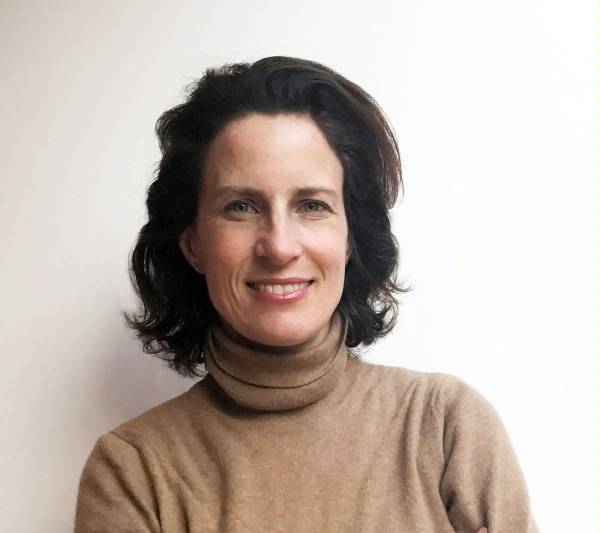Mrs Maria Kramer


Maria Kramer holds the position of Senior Lecturer at the University of Westminster, where she runs the MArch RIBA II Live Studio DS20. She established the Live Design Practice, a platform that fosters the development of diverse Live Projects. These initiatives are dedicated to action research, knowledge exchange, social value creation, and the exploration of innovative and alternative practices. The culmination of these efforts is evident in the successful completion of projects such as 'The Growing Space' Community Live Project at Cody Dock.
In addition, Maria contributes to the Professional Practice Part III Course and holds the position of director at Room 102 ltd. Within this capacity, she drives the company's focus on regenerative and community-driven projects. Maria's professional journey spans over twenty years, during which she has accumulated extensive experience in master planning and project management. She has held positions at firms such as Coop Himmelb(l)au and Hopkins&Partners. Moreover, Maria co-managed the architecture office Leit-werk ltd as a partner and director for more than a decade, demonstrating her exceptional leadership and expertise in the field.
Maria Kramer graduated with a diploma from the Bartlett School of Architecture, UCL in addition to obtaining a masters. Previously she has studied architecture at the University of Applied Arts in Vienna and art at UCSB (University of California, Santa Barbara).
Maria has given upskilling seminars to local councils and their regeneration teams financed by the GLA with regards to the process of briefing, designing and constructing building projects based on RIBA work stages. This included understanding risks and opportunities of different building contracts holistically as well as their pros and cons and basics for tendering and managing quality control throughout the project stages.
Maria’s research encompasses the combination of exploring the architect’s role as a social value creator as well as promoting and enhancing ecological considerations in the built environment.
Promoting community and student-led initiatives serves to embed collective power within ecological localism and demonstrates that design ambition can effectively align with collaborative efforts through participatory design.
Her research explores how through Live Projects new ideas are tested, questioning existing processes and structures, and allowing experimentation to thrive, whilst helping instigate and promote change regarding equity and local ecology within communities.
Maria has been engaged in more than eight Live Projects since 2017, as part of the Live Design Practice, using these projects as case studies for making, interrogation, analysis, and reflection. She is critically analysing and reflecting on Live Projects, exploring insights into academic discourse, alternative practice, and social value creation, as part of the Live Design Practice she has set up: http://www.openstudiowestminster.org/beyond-studio/live-design-practice/
Being exposed to the entire briefing, design and construction process within academia, engaging with stakeholders, consultants, makers and local communities, yields valuable study and promotes in-depth knowledge exchange. The concept of Live Projects is rooted in developing briefs directly embedded in society, encompassing its political, economic, social, and ecological systems in relation to our lived experience. When briefs are implanted in the 'real world,' the complexity of decision-making, including powerful but invisible factors within the built environment, is experienced first-hand.
Live Projects are contextualised within Learning Theories, illustrating how 'live exposure' transforms into learning through a continuous cycle of experiencing, reflecting, thinking, and acting. Reflecting on methodologies for development and making, exploring their impact on the process and outcome, while developing an understanding of complex dynamics within group work and external stakeholder relationships is part of the live research. Pedagogically, Live Projects are situated in the context of Experiential Learning and Experiential Knowledge Creation, drawing on theories like constructivism and embodied knowing.